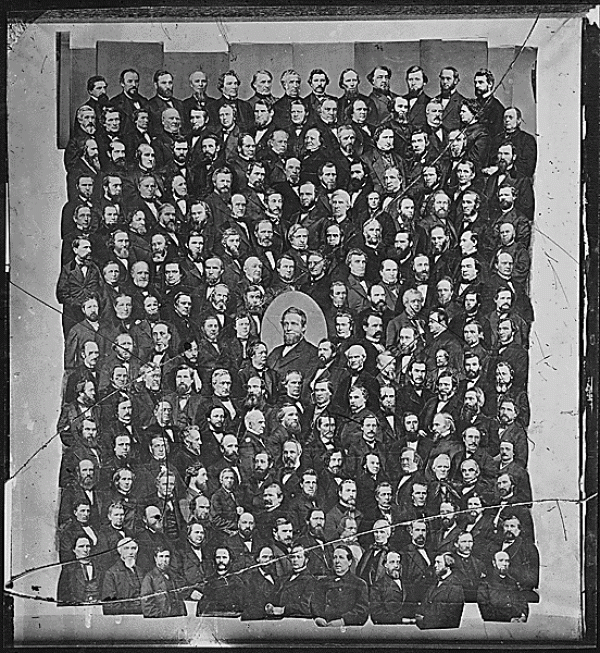Today’s post comes from National Archives Office of Strategy and Communications staff writer Rob Crotty.

History tends to show that midterm elections are never particularly good for the sitting President. In 2006, many Republicans were moved from their seats due to dissatisfaction with George Bush’s policies. In 1994, Republicans swept the House as a referendum on the policies of Bill Clinton. Even one of the most revered Presidents, Abraham Lincoln, was not spared the anti-incumbent sentiments during the 1862 midterm elections. Not only did Lincoln’s party lose the House, but Abe Lincoln’s hometown of Springfield even voted for the opposition.
There were reasons to be upset. What was supposed to be a quick war now seemed endless. Lincoln had suspended habeas corpus. There were concerns about Lincoln’s Emancipation Proclamation. Earlier that summer, for the first time in U.S. history, Congress instituted an income tax.
By 1864, the country’s mood had changed yet again, even if the circumstances on the ground had not. That endless war was still ongoing, though the outcome now favored the Union. Habeas corpus remained suspended. The Emancipation Proclamation was still unsettling to many. There was still an income tax, and to top it off, the government had instituted a draft so unpopular that Federal troops coming back from Gettysburg were sent to quell rioting in New York.
Following his party’s loss in 1862, 1864 proved much better. Lincoln’s Republican Party swept the House again, more than regaining their losses from two years earlier. In the Senate, Republicans gained six seats. And in the Presidential elections, Lincoln won the electoral vote by one of the largest margins in history, taking every state but three. He won the electoral vote 212 to 21.
